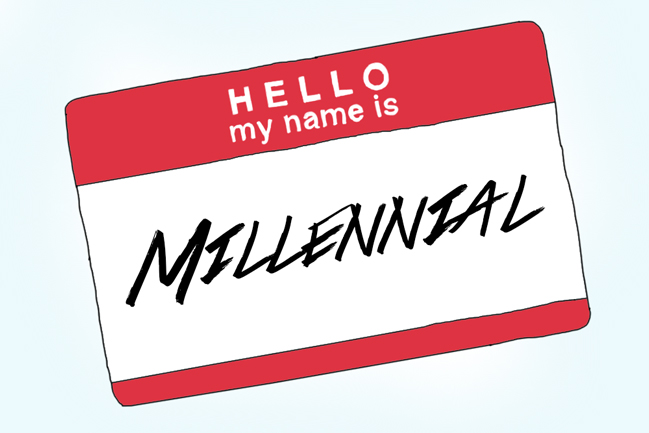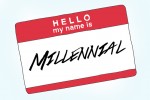Los millennials y el servicio al cliente
Naturalmente, todos quieren un buen servicio al cliente, pero ¿qué significa buen servicio al cliente para los millennials? Veamos algunos hallazgos.
Ante la pregunta ¿cuál es el método preferido de comunicación para el servicio al cliente? encontramos que muchos consumidores prefieren que las empresas se contacten a través de mensajería móvil (SMS, WhatsApp u otro servicio) ya que son “inmediatos, breves, concisos”. A tener en cuenta, a los millennials les gusta el contacto rápido.
A otros millennials, les gusta tener la posibilidad de hablar con un representante. Pero hay algo que los aleja de realizar los llamados y es que tienen períodos de espera muy largos. Pero, solo llamarían al servicio de atención al cliente, si hay algún inconveniente que no pueden resolver ellos mismos.
¿Cómo se sienten al tener contact centers en otro lugar?
Nada de qué preocuparse, porque a los millennials no les importa dónde está el contact center porque entienden que estamos en un mundo globalizado, y que el contact center esté en Córdoba, República Dominicana o en Capital Federal, es parte de esa globalización. Eso sí, si cuando uno llama es comprensivo y amable, obtendrá mejores resultados, sin importar dónde esté el call center. “Se trata de conseguir solucionar el inconveniente, no de dónde están situados”, explicó Joe, uno de los millennials consultado.
Buen o mal servicio al cliente para un millennial puede significar muchas cosas. En la actualidad, hay muchas formas de contactarse con las empresas para servicio al cliente: Instagram, Twitter, Facebook, un mensaje por Facebook o por correo electrónico.
En el caso de la marca Sephora, también tiene un foro llamado Sephora Beauty Talk, que es una excelente manera de hacer una pregunta general y obtener respuestas de usuarios y moderadores.
Enviando un mensaje a través del Facebook Messenging de Sephora, se obtiene una respuesta bastante rápida, por lo general dentro de las 3 horas, comparada con el email que lleva más tiempo.
Si alguien quiere avergonzar públicamente a la empresa, publica en su página de Facebook y se obtiene una respuesta rápida. Más allá que un millennial adore a la marca, no dejará de avergonzarla públicamente, si esta comete un error.
¿Cuáles son las expectativas de los millennials en cuanto al tiempo de respuesta?
En general, el tiempo de respuesta necesario para el servicio al cliente para los millennials es muy subjetivo, dependiendo del producto y la situación. Por ejemplo, si se trata del servicio al cliente de una marca de ropa, no es tan urgente, comparado con el servicio al cliente de una empresa de tecnología, que en general debería ser mucho más rápido.
Algunos millennials esperan que la respuesta sea más rápida si el canal utilizado es la red social, ya que si se elige ese medio de comunicación con la empresa es porque se precisa una respuesta rápida.
No sucede lo mismo para empresas más pequeñas, ya que se sobreentiende que las empresas pequeñas, tienen otros desafíos. En lugar de elegir la humillación pública de un mensaje en el muro de Facebook, los millennials envían mensajes privados. Los millennials entienden que en este caso, pueden no tener los recursos para tener gente atendiendo exclusivamente las consultas o reclamos en redes sociales.
¿Son los sitios de reseñas, como Yelp, un lugar de humillación pública?
Estos sitios pueden ser útiles para el consumidor ya que aparecen críticas, tanto positivas como negativas sobre diversas empresas. Y algo que es también muy interesante, es la forma en que la marca reacciona a esas malas críticas. Pero, para muchos millennials, es más impactante dejar una mala crítica en las redes sociales que en sitios como este.
Cuando el servicio al cliente de una empresa, enfrenta una crisis, por lo general, no es algo imprevisto, incluso si la empresa pretende que sí lo es. No se puede encontrar la forma de salir de la crisis, cuidando solo ese preciso momento. Si una empresa no se preocupa por todos los momentos en los que interactúan con los clientes, preocuparse por uno solo no va a ayudar.
Los millennials, ¿tienen expectativas muy altas respecto de otras generaciones en cuanto a servicio al cliente?
Ciertamente, un vendedor agresivo o que presione, no tiene éxito con los millennials. Cada vez que un millennial se contacta con el servicio al cliente es porque realmente lo necesita. Es posible que quieran un servicio más rápido, pero solo quieren la información que están pidiendo y ven a otras generaciones que quieren estar más involucrados, que desean una mayor interacción con el servicio al cliente que conduzca a la venta.
Si un producto tiene que ser explicado para conseguir que a alguien lo compre, un millennial asume que entonces, no vale la pena ese producto.
Esta generación es más de “hágalo usted misma”. Si se rompe la pava eléctrica, bien, no enloquecen, sino que buscan en You Tube algún tutorial para solucionarlo y listo. El servicio al cliente, solo lo quieren para las respuestas específicas, no para todo. Aquí es donde las marcas deben prestar atención, analizar bien cómo funciona el sitio web institucional y asegurarse tener varias soluciones a diversos problemas para que los millennials no den críticas negativas.
(Vía Business to Community)










Dejar un comentario
¿Quieres unirte a la conversación?Siéntete libre de contribuir!